Yale Richards Professional Education Seminar


man, Director of Information Technology at Frankel Zacharia Tech Services, provided four hours of continuing professional education credits to all in attendance.
Over 80 attorneys, accountants, financial advisors, insurance professionals and charitable gift planners attended the 13th Yale Richards Professional Education Seminar on Oct. 28, 2022, at the Boys Town Conference Center. Co-sponsored by the Jewish Federation of Omaha Foundation and Boys Town, featured speakers Professor Christopher Hoyt, J.D., of the University of Missouri Kansas City School of Law and Tim Weid-
Professor Hoyt focused on tax-smart charitable giving through retirement accounts and planning techniques for inherited individual retirement accounts. Mr. Weidman addressed the best practices for professional advisors to follow to keep information confidential, secure and privileged and to protect electronic devices from hackers.
The professional education seminar is named to honor Yale Richards, of blessed See Yale Richards Seminar page 2
20th Annual Omaha Jewish Film Festival presents The Museum


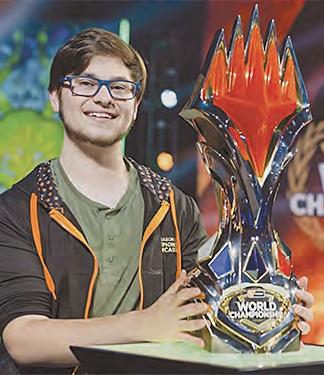 MARK KIRCHHOFF JFO Engagement and Education
MARK KIRCHHOFF JFO Engagement and Education
How is it possible that in a movie titled The Museum, the museum is not the focus of the movie at all? Is this some kind of upside-down world we live in?
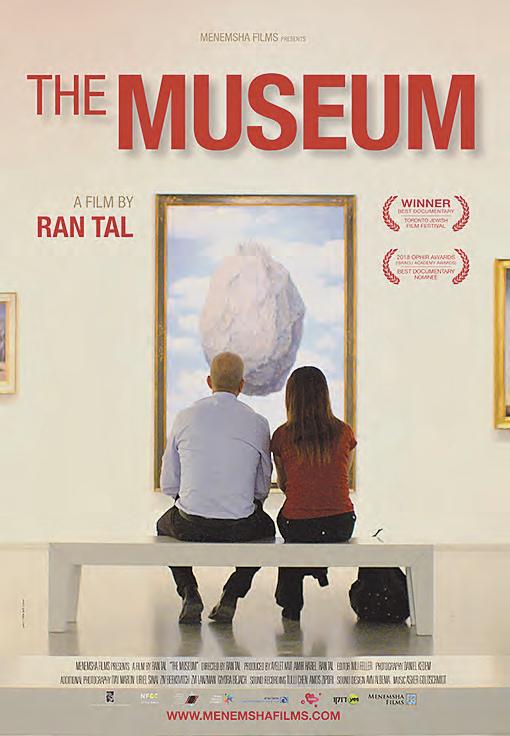
The answer to the second question may be “yes,” but not based on the movie. Film distributor Menemsha Films describes it this way:
“The Museum is a film that seeks
to explore the Israeli soul through the galleries, storerooms and visitors of
the Israel Museum, Israel’s most important cultural institution. This is a documentary puzzle, simultaneously intriguing and amusing, which attempts to define the unique essence of the museum within the exceptional geographical, historical and political context in which it functions.
With a trenchant, ironic eye the film follows the visitors, observes the observers, listens to the speakers and descends to the storerooms, labs and conference rooms. The American museum director, the singing security guard, the Jerusalemite curator, the Haredi kashrut inspector, the Palestinian guide and the blind visitor are just a few of the characters that take part in a chain of activities which add up to the museum.”
In keeping with the 20th Annual Omaha Jewish Film Festival, Views of the World Through Israeli Eyes, the See Jewish Film Festival page 2
Local Author Series: Ari Kohen

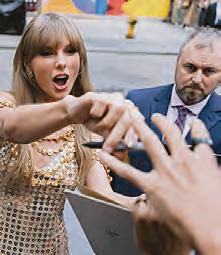 VAN DE KAMPWRIGHT Jewish Press Editor
VAN DE KAMPWRIGHT Jewish Press Editor
The next installment of the Local Author Series is scheduled for Tuesday, Dec. 13, from 10-11 a.m. in the Ben and Anna Wiesman reception Room at the Staenberg JCC. Our guest that day is Ari Kohen.
Ari Kohen is the professor of political science, the Schlesinger professor of Social Justice and the Director of the Harris Center for Judaic Studies at UNL. He is the coauthor of several books, and is well known for leading several Momentum trips to Israel. In addition, he guided a group of UNL students during a study abroad program in Israel, which was featured in this paper a few months ago.

Most recently, together with Gerald J. Steinacher, he co-edited Antisemitism on the Rise: the 1930s and Today. It contains a collection of nine essays, with topics ranging from the Weimar Elites, antisemitism at Harvard, use and abuse of the Bible in the 1930s and 40s to BDS and Holocaust education.
Writing after the 2017 ‘Unite the Right’ rally in Charlottesville, the book traces how deep antisemitic roots go, and how it doesn’t grow in a vacuum.
“Replacement theory,” Kohen and Steinacher write, “the conspiracy that provides structural support for a good deal of the white supremacist activism we see today, can be traced back to antisemitic conspiracy theorizing in France in the late 1800s that imagined a Jewish plot to bring about the downfall of a white, Christian Europe through miscegenation.”
The book addresses questions about the Boycott, Divestment and Sanctions movement, and about
NOVEMBER 18, 2022 | 24 CHESHVAN 5783 | VOL. 103 | NO. 6 | CANDLELIGHTING | FRIDAY, NOVEMBER 18, 4:43 P.M. In Germany, Kristallnacht goes by a different name Page 3 Taylor Swift adds Orthodoxfriendly dates to her tour Page 6 Meet the Jewish world champion of Magic: The Gathering Page 12 The Jewish Press WWW.OMAHAJEWISHPRESS.COM | WWW.JEWISHOMAHA.ORG SPONSORED BY THE BENJAMIN AND ANNA E. WIESMAN FAMILY ENDOWMENT FUND AN AGENCY OF THE JEWISH FEDERATION OF OMAHA REGULARS Spotlight 7 Voices 8 Synagogues 10 Life cycles 11 INSIDE
LINDA POLLARD JFO Foundation Endowment Assistant/ Staff Writer
ANNETTE
See Local Author Series page 2
Jim Farber and Scott Meyerson
Yale Richards Seminar

Continued from page 1
memory. Yale Richards was a senior partner at the law firm of Marks, Clare and Richards, LLC, and also served as counsel and Executive Director of the Milton S. & Corinne N. Livingston Foundation for 28 years. In recognition of his valuable service to the Omaha Jewish community for over 50 years, the Livingston Foundation established the Yale Richards Professional Education Endowment Fund in 1998 at the Jewish Federation of Omaha Foundation. The Livingston Foundation Fund is now a donor-advised fund at the JFO Foundation. The Yale Richards Professional Education Endowment Fund, administered by the JFO Foundation, provides financial support for periodic seminars for professional advisors and interested donors. Planning is already underway for the next Yale Richards Professional Education Seminar.
RIDE FOR THE LIVING
Local Author Series
Continued from page 1 the relationship between antisemitism and anti-Zionism. The book also includes an essay by Institute for Holocaust Education Executive Director, Scott Littky, exploring the challenges of teaching about antisemitism in schools.
“Taken together,” Kohen and Steinacher write, “these contributions offer a serious look at some aspects of contemporary research on antisemitism, alongside a focus on bridging the gap between research and teaching on the topic.”
Each essay includes a series of questions for further discussion, some of which Ari will address during the Dec 13 session.
Since we scheduled this event, there have been countless instances of antisemitism in the news, and Ari will respond to any questions the audience may have. We do like these events to be interactive, and this is the perfect opportunity to gain understanding
about some of the news we see; it’s not always easy to know how we should respond to antisemitism. Is it serious? Is it a microaggression? Should we respond, and how? Can we ignore it, are we allowed to ignore it or are we required to always pay attention?
Antisemitism on the Rise is available on Amazon, but even if you haven’t read the book, you can submit any questions beforehand to avandekamp@jewishomaha.org. The Local Author Series is a collaborative effort between the Community Engagement arm of the Jewish Federation of Omaha and the Jewish Press. Sharon Comisar-Langdon and Annette van de Kamp-Wright will co-host.
This event is free, but we do ask that you register for either the Zoom or the in-person event. You can do so by visiting www.jewish omaha.org and clicking on the slider at the top of the page. Small refreshments will be served. We look forward to seeing you there!
Jewish Film Festival

Continued from page 1 Film Festival presents this second film on Tuesday, Nov. 22 at 7 p.m. in the Levine Cultural Arts Theater at the Staenberg Omaha Jewish Community Center. Tickets are $10 and may be purchased in advance by going to jewishomaha.org and clicking on the slider at the top of the page. Tickets are also available at the door with cash or check.
A special bonus video of an interview with the Museum Director at the time of the filming of this documentary is part of the evening. This is an insightful interview that provides insight into both the museum and the film. Following that screening will be a drawing for free tickets to the additional films in the festival. The festival continues
on Nov. 29 with In Search of Israeli Cuisine and Dec. 6 with Kiss Me Kosher.
The 20th Annual Omaha Jewish Film Festival is made possible through the generosity of these Jewish Federation of Omaha Foundation funds: Lois Jeanne Schrager Memorial Fund; Samuel & Bess Rothenberg Endowment Fund; Ann Woskoff Schulman Memorial Fund; Ruth Frisch & Oscar S. Belzer Endowment Fund; Lindsey Miller-Lerman (Avy L. & Roberta L. Miller Foundation); Jewish Federation of Omaha Foundation IMPACT Grant. Additional support from B’nai B’rith – Henry Monsky Lodge.
Address questions about the festival to Mark Kirchhoff at mkirchhoff@jewishom aha.org or 402.334.6463.
Commemorating the Holocaust and honoring the rebirth of the Jewish community in Krakow, Poland.
A 60-mile bike ride from the gates of Auschwitz-Birkenau to JCC Krakow, either in-person or by participating remotely in the new Ride For The Living Global Challenge.
The RFTL Global Challenge is a free alternative to the in-person RFTL where participants can remotely cycle, run, or walk 60 miles in their own communities alongside 3,000+ international participants.
For more information go to ridefortheliving.org

2 | The Jewish Press | November 18, 2022 News LOCAL | NATIONAL | WORLD
Howard Epstein with guest presenter Tim Weidman
AMY BERNSTEIN SHIVVERS JFO Foundation Executive Director
What comes to mind when you think of philanthropy? One definition reads: “charitable acts or other good works that help others or society as a whole. Philanthropy can include donating money to a worthy cause or volunteering time, effort, or other forms of altruism.”
What about the difference between philanthropy and charity? While both focus on helping others, charity is more immediate and frequently driven by emotion. Philanthropy is more strategic, focusing on long term solutions and multiple gifts over a period of time.
Each of us, when asked, will have our own definition of what philanthropy means to us. The spark of philanthropy, in each of us, will be celebrated and shared during the Jewish Federation of Omaha Foundation’s 40th Anniversary.

The theme for the Foundation’s 40th Anniversary is Embracing Philanthropy. During the 2023 calendar year, and beyond, the Foundation will be honoring our legacy of giving as well as planning for the future. To ensure the future financial support and leadership of the Omaha Jewish community, it is necessary to build a new generation of philanthropists to carry the tradition of generosity that the generations before have recreated. L’dor V’dor. The Foundation knows the importance of nurturing next-generation givers and is casting a fairly wide net, including those in their 20s to 50s.
It is the goal of the Foundation to start the conversations, plant the seeds and ignite sparks around philanthropy now.
Let’s instill our younger Omaha Jews with the importance of giving their time, talents and dollars so that the future of the Jewish community can be assured.
This will be accomplished through educational programming, interesting and knowledgeable speakers, and social events tailored for the next gens’ interests. We will include current donors and our Foundation Board to help inspire and share their stories.
Our 40th anniversary will be the launching pad for this development effort. Success will be defined by audience participation, curiosity, empathy, understanding and diving into your philanthropic “why.” And, bonus - we will begin to see new faces in our community!
Thank you for joining forces to maximize the effort and success. I know each of you has siblings, children, grandchildren, nieces, nephews, and cousins who may be on the sideline versus engaged in our rich conversations. We have the shoulders of so many philanthropists to thank and who can share their journey for guidance, inspiration and support.
We encourage everyone to give philanthropy a try and attend an event, or two, next year. Perhaps attend as a family and help the Foundation spark philanthropy!
Updates will be shared as programming takes shape. Please reach out with your thoughts.
Thank you for believing in and supporting Jewish Tomorrows, Today!




You can reach me at 402.334.6466 or by email at ashivvers @jewishomaha.org
In Germany, Kristallnacht goes by a different name. Here’s why.
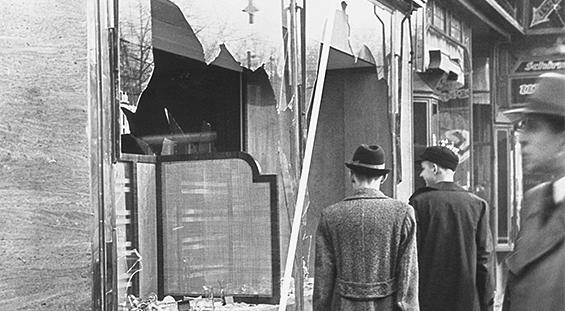 TOBY AXELROD JTA
TOBY AXELROD JTA
Last week, Jewish communities across the United States commemorated the anniversary of Kristallnacht, the anti-Jewish riots that marked a brutal turning point in the Nazi campaign of persecution.
In Germany, cities and towns also commemorated this day, but under a different name. They refer to the events of November 9-10, 1938, as “the November Pogrom,” or variations on that term. That’s because to many in Germany, the term “Kristallnacht” — night of shattered glass — sounds incongruous.
“It has a pretty sound,” said Matthias Heine, a German journalist whose 2019 book examined the role of Nazi terms in the contemporary German vernacular. “When you know that it was a very serious and bloody and violent event, then this term isn’t acceptable anymore.”
That autumn night, government-coordinated anti-Jewish riots swept through virtually every town and city across Nazi Germany. Over several days, rioters destroyed hundreds of synagogues, looted thousands of businesses and killed at least 91 Jews; 30,000 Jewish men were sent to concentration camps. It was a turning point in both Jewish and non-Jewish memories, said Guy Meron, historian at the Open University of Israel and the Institute for Holocaust Research at Yad Vashem, Israel’s Holocaust memorial.
“Until the pogrom, we still had a Jewish public sphere in Germany: Jewish organizations were active, and in some places in Germany Jews could still feel safe in public life,” said Meron, whose latest book, To Be a Jew in Nazi Germany, comes out in English next year.
And in terms of “what the public witnessed, it never happened again,” he added. “German public opinion did not like the street violence; they were not in favor of the Jews, but law and order were so important to them.” As the genocide escalated, so did the secrecy. Most deportations took place under cover of night.
Kristallnacht, or the November Pogrom, took place in broad daylight, or illuminated at night by flames. The evolution of the terms used to describe the same events speaks to nuances in the culture of remembrance in Germany and around the world.
For Inge Auerbacher, who grew up in Kippenheim, in southwest Germany, there was nothing pretty about that night.
“All our windows were broken, and my father and grandfather were sent to Dachau,” Auerbacher, 87, recalled in a recent interview from her home in Queens, New York. “It was the beginning of the end.”
“I know it as Kristallnacht,” said Auerbacher, who survived the Theresienstadt concentration camp. “I was not even 4, but I remember it.”
Angelika Antpöhler, who grew up in Berlin, remembers, too. As a six-year-old, she was confused by what she saw as she walked to school with her grandmother on Nov. 10.
“I said, ‘Look at all those people throwing shoeboxes from the shop windows!’ There was a happy mood. I remember that very well,” said Antpöhler, who is not Jewish. “They were trying all the shoes on.”
“My grandmother said to me, ‘We don’t look at that. This is hell, this is the devil at work.’”
This week, Antpöhler will share her memories in conversation with moderator Frank Laukötter at an event recalling the burning of the Aumunder Synagogue in Bremen, where she lived after the war with her late husband, Hajo Antpöhler.
It was one of hundreds of events planned across Germany marking the 84th anniversary of the pogrom. Few use the name by which it is known around the world.
“Kristallnacht is a much too pretty word for something so terrible, and I don’t use it anymore,” said Jessica Ohletz, vice principal of the Julius-Leber High School in Breisach, a town in southwest Germany. Ohletz is taking students for the first time to participate in a program on “The Days of Terror” at the Blue House, an educational establishment located in the town’s former Jewish religious school and community house.
“I personally believe that all the terms create false associations,” said Christiane Walesch-Schneller, who chairs the board of the Blue House. “For me, there is no term yet which I feel is adequate.”
In Breisach, “the terror went on for three to four days,” she said. “They were looting Jewish stores, attacking Jews in the street.” Sixty Jewish men were transported to the Dachau concentration camp. And “the Jewish community received the bill for the gasoline that was used to burn the synagogue.”
In Germany, the terms “November Pogrom,” “Pogromnacht” or “Reichspogromnacht” were slowly introduced in the late 1970s, when Germany’s postwar generations began challenging their parents’ sanitized version of history.
See Kristallnacht goes by a different name page 5
B’NAI B’RITH BREADBREAKERS
The award-winning B’NAI B’RITH BREADBREAKERS speaker program currently meets Wednesdays via Zoom from noon to 1 p.m. Please watch our email for specific information concerning its thought-provoking, informative list of speakers. To be placed on the email list, contact Breadbreakers chair at gary.javitch@gmail.com
The Jewish Press | November 18, 2022 | 3
Embracing Philanthropy
ORGANIZATIONS
Credit: Getty Images; Design by Mollie Suss
Thanksgiving at its most basic In memory of Dr. Karen Weingarten
When you go around your Thanksgiving table, chances are that no one will say: “I am thankful for having been born.” Not that we are not thankful about that, it’s just that we all take this for granted. Sometimes, however, you meet a person who makes you reflect upon the very fact of your existence. Such is the case with Yossi Cohen. Yossi and his Indian aide Sanjo are regulars at the park next to my son’s home in Herzliya. Yossi, 73, has a degenerative disease that, beginning in his early 30s, gradually wore down most of the muscles in his body. He had lived a regular life before then, marrying and having two children. Yossi has been in a wheelchair for many years now, with almost no mobility from the neck down.
From what Yossi has been able to determine, his disease can be traced back to the marriage of his maternal grandparents in Persia (Iran), who were first cousins. Yossi’s mother and an aunt had the disease, as well as three of Yossi’s four siblings (the disease seems to have stopped with Yossi’s generation, as neither his two daughters nor his four grandchildren have the disease). Yossi calls his situation “a sad story,” but he said: “On the one hand, I have this disease, but on the other hand, had my grandmother not married my grandfather, I wouldn’t be here—and I had a very good life up until the age of 30.”


I heard Yossi being thankful for his life, and because of that, he is thankful to his grandparents even though they transmitted a genetic disease. It was very poignant for me to hear Yossi and his story. I’m one of those people whose parents’ marriage was never good. Somehow I was always able to rue the fact of my parents’ marriage while at the same time taking my existence for granted. There is no escaping Yossi’s logic, though: If you appreciate your existence, then you have to be thank-
So Laugh a Little!
MAGGIE CONTI RBJH Director of Activities and Volunteers Services
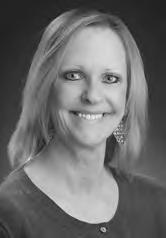
The Meyers Family Legacy of Laughter (LOL) continues at RBJH as their ongoing mission to bring joy and laughter to the elderly. LOL proudly donated David Toyoshima’s “Comedy Sketch” Series featuring some of history’s most beloved comedians from radio, stage, and screen. David Toyoshima grew up watching classic comedy TV—even when it was long past bedtime. David and his parents—along with Name, their dog—were glued to shows like Ed Sullivan, Steve Allen, and Johnny Carson. Today, David is a professional illustrator, advertising art director, and graphic design professor at Cal State University, Long Beach. His illustration style is influenced by the great Jack Davis and Mort Drucker of TV Guide and Mad Magazine fame.
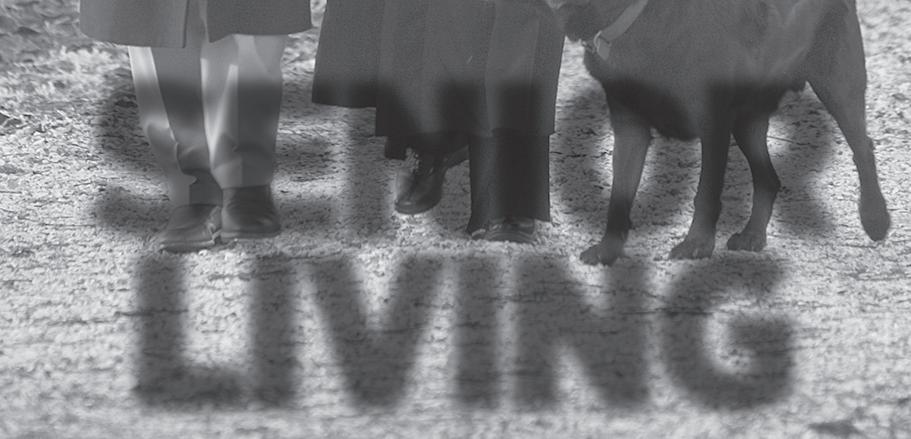
The RBJH activity staff decided to have a whole week of laughter to carry on the theme with trivia, games, and documentaries of all the classic comedians. The illustrations will be permanently placed on Main Street in the Learning Center of RBJH. On behalf of the Residents at RBJH, I thank the Meyers Family Legacy of Laughter Endowment Fund of the
ful to the people who brought you into this world (barring instances of coercion and violence). If anyone had cause to regret a marriage it would be Yossi for his grandparents’. But Yossi is thankful that they married because they bequeathed him his existence. Can I be thankful for my parents’ marriage? Well, if it is put that way, I simply cannot assent.
But how about this: Can I be thankful to my father and to my mother for bringing me into existence? Yes, I can.
Endnote: Dr. Karen Weingarten, my first cousin and a loyal fan of this column (she wrote to me frequently) passed away on Oct. 21 at the age of 67. Karen had been battling cancer for several years. Her condition had improved enough for her to travel to Israel in early September with her husband Sheldon for a ceremony marking their donation of a
rapid response vehicle to Magen David Adom. Karen and I, however, did not manage to meet when she was here. After she returned, she emailed me: “Hopefully on my next visit we will get together.” Though it has to be said that I did not know of Karen’s illness when she was in Israel and that I only learned about it after her death (she was very private about this), and though we had a very pleasant conversation when I called her toward the end of September, Dear Reader, you will understand why the following two words are a lesson to be learned here: Carpe Diem.



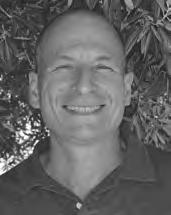
Teddy Weinberger, Ph.D., made aliyah with his wife, former Omahan Saraj Jane Ross, and their five children, Nathan, Rebecca, Ruthie, Ezra, and Elie, all of whom are veterans of the Israeli Defense Forces; Weinberger can be reached at weinross@ gmail.com
The Meyers Family
Jewish Federation of Omaha Foundation. As always, we thank the Meyers’ beloved and extremely humorist parents, Bernie (Bobo) and Rochelle (Roro) Meyers, for their Legacy of Laughter in sharing joy in an all-too-serious world.
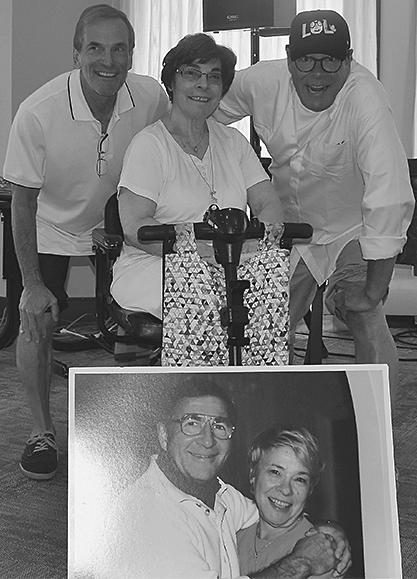
4 | The Jewish Press | November 18, 2022 Enterprise Bank www.enterprise.bank 12800 West Center Road Omaha, NE 68144 402/330-0200 210 Regency Parkway Omaha, NE 68114 402/392-0400 Enterprise Bank Makes Buying Your Home Easier. We are a full service community bank that offers competitive mortgage rates. 24 HOUR APPROVAL CALL TODAY! Janet Bowie 402-898-1464 Mortgage Loan Officers Steve Winterhof 402-829-7261 Annette van de Kamp | avandekamp@jewishomaha.org Contact our advertising executive to promote your business in this very special edition. Publishing date | 12.23.22 Space reservation | 12.13.22 SENIOR LIVING
TEDDY WEINBERGER
KFC Germany’s ‘treat yourself’ chicken promotion
ANDREW LAPIN
JTA
The German branch of KFC apologized to customers for sending out a promotional message tied to the anniversary of Kristallnacht.

“It’s memorial day for Kristallnacht! Treat yourself with more tender cheese on your crispy chicken,” KFC Germany said in an initial push notification message to customers, in German, advertising its “KFCheese.”
A short time after, the chain sent a follow-up in all-caps: “SORRY WE MADE A MISTAKE.” The company blamed the message on “a bug in our system.”
Kristallnacht goes by a different name
Continued from page 3
The history of the Kristallnacht name is unclear. In their 1988 lexicon, “NS-Deutsch” (“National Socialist German”), authors Karl-Heinz Brackmann and Renate Birkenhauer say “the harmless-sounding name was also used officially to refer to the mountains of broken glass lying on the streets.” But in 1998, German linguist Cornelia Schmitz-Berning decided not to include it in her “Vocabulary of National Socialism,” as she found “no contemporary documentary evidence of the term being used.”
“It was never used in official talks or papers of the time; it was popular jargon,” said Heine, whose 2019 book “Burnt Words: When we still talk like the Nazis — and when we don’t” also explores the etymology of loaded words.
Whatever its source, “there are good reasons to reject the term,” Heine said. For one thing, it might distract from a speaker’s point: “You can interrupt any serious conversation in Germany by saying your counterpart used a Nazi word.”
There was even a 1982 hit by the German rock group BAP called “Kristallnaach”: In the Cologne dialect, the group rants about right-wing populism, materialism and other ills of modern Germany, with the refrain, “It smells like Kristallnacht.”
nacht is a euphemism or how it is so.”
Moreover, she said, most Americans associate the word “pogrom” with the former Russian empire, not with Germany.
And lastly, Rice added, there is a practical consideration:
Kristallnacht is the search term most-English-speakers use, “a fact which must be weighed for things like our searchable online encyclopedia.”
It’s another story in Israel, said the historian Meron.
“In Hebrew, it never sounded like the language of the perpetrators,” he said. But after talking with German colleagues, he stopped using the term Kristallnacht — though it hasn’t been easy. “Each time I write an article I have to explain it to the editors again.”
In the English-speaking world, the term must be viewed with understanding, said Charlotte Knobloch, head of the Jewish community of Munich and Upper Bavaria, in an email to JTA.
“It has become such a distinctive marker for all remembrance of Nov. 9, 1938,” a day whose aftermath she witnessed as a sixyear-old child, walking with her father past their fire-blackened synagogue in Munich, stepping over shards of glass. Knobloch, now 90, survived the war in hiding with a Catholic family.
Germany takes the anniversary of Kristallnacht seriously, even though Germans do not call the event by that name. Memorial events and discussions take place nationwide each year on Nov. 9-10 to reflect on Nazi Germany’s persecution of Jews. Reaction to KFC’s “mistake” came swiftly. Arsen Ostrovsky, head of the pro-Israel legal group International Legal Forum, said he was “utterly speechless and repulsed.”
Meanwhile, another German institution came under fire for a Kristallnacht controversy this year. Goethe-Institut Israel, the Israeli location of the German language and cultural center, rescheduled a planned panel discussion on “the Holocaust, Nakba and German Remembrance Culture” that had been set to take place on the anniversary of the violence. The “Nakba” is the common Palestinian term for the mass displacement and deaths that accompanied the State of Israel’s 1948 War of Independence.
Israel’s Foreign Ministry had criticized the Goethe-Institut for linking the Holocaust to the founding of the State of Israel on the anniversary of Kristallnacht, calling it “the blatant cheapening of Holocaust and the cynical and manipulative attempt to create a linkage whose entire purpose is to defame Israel.”
“The song is trivializing history: people died,” said Frank Laukötter, art historian and board member of the Kulturkirche St. Stephani Bremen. “It goes in the wrong direction.”
The earliest attempts to effect a semantic change can be traced to 1978, said Berlin-based historian Rabbi Andreas Nachama. At the time, Heinz Galinski, then head of the Berlin Jewish community, said in an interview that “more than just glass was broken. People were killed.”
That same year, on the 40th anniversary of the pogrom, German lawmaker Klaus Thüsing proposed substituting the term “Reichspogromnacht” for “Reichskristallnacht.”
“Here in Germany, people are very quick to trivialize this history, they say, ‘Oh, it was a long time ago,’” said retired minister Annemarie Werner of Berlin, one of the signatories to the appeal. “The expression focuses on damage to things, and no one speaks of those who were murdered or sent to camps.”
Many English-speaking scholars, and institutions such as the United States Holocaust Memorial Museum, “retain the term as a necessary evil,” said Patricia Heberer Rice, senior historian at the museum’s Jack, Joseph and Morton Mandel Center for Advanced Holocaust Studies.
“Using ‘Pogrom Night’ or ‘November Pogrom’ might confuse American readers, who do not have the same historical connections with the event as Germans do,” she said in an email to JTA. “Most Americans would not understand that Kristall-
“What matters most — and certainly more than the question of label — is that people carry on the tradition of remembrance,” she said. “If a well-established term can serve that purpose, then I do not think replacing it would do much good.”
When Antpöhler speaks to the Bremen community on Tuesday, she will share the story of her late husband, Hajo, whose family lived a short walk from the Aumund Synagogue. Hajo had invited school friends to celebrate his eighth birthday on Nov. 10. The son of a local fireman turned him down immediately, as Hajo Antpöhler recalled in a poem many decades later: “The schoolfriend couldn’t come to the birthday party; he wanted to watch his father, the fireman. The synagogue was supposed to burn, so the neighboring houses had to be protected.”
On the empty corner lot where the synagogue once stood, he described the “blue pansies and the bright-eyed buttercups stepping between the young nettles; a suitcase broken open, empty cans thrown over the wire fence. … All those who prayed and sang praises here are smoke.”
“After Kristallnacht, I realized somehow they think we are different,” said Auerbacher, who has shared her story in numerous books, interviews and addresses, including at the German Bundestag last Holocaust Remembrance Day. “The glass was crackling like crystals falling. And it was, in a way. When you think of crystals, you think of something expensive. They wanted to break the spirit and the heart and the soul of a people.”
Does the market have you down?


No worries. An incentive match is here to boost your investment! Contact us today.
Contact Amy Bernstein Shivvers, Executive Director 402-334-6466 ashivvers@jewishomaha.org www.jfofoundation.org
The Jewish Press | November 18, 2022 | 5 News LOCAL | NATIONAL | WORLD
“Welcome to KFC” is written above a drive-in menu at the fast food chain Kentucky Fried Chicken (KFC) in Duesseldorf, Germany, Nov. 18, 2020. Credit: Rolf Vennenbernd/picture alliance via Getty Images
Taylor Swift adds Orthodoxfriendly dates to her tour
CALEB GUEDES-REED
JTA



You’re On Your Own, Kid, isn’t just the name of a track on Taylor Swift’s newest album — the phrase describes the way many of the pop star’s Jewish fans were feeling after she re-




for April 2, a Sunday, in Arlington, Texas.)
In response, Swift added eight more shows to the U.S. leg of her tour on Nov. 4, all on weeknights, in cities such as Philadelphia, Seattle and Los Angeles. Many applauded the additions.
Swift’s Midnights album sold over a million
Downplaying a student’s Nazi costume
 PHILISSA CRAMER JTA
PHILISSA CRAMER JTA
Students at one of Chicago’s most selective public high schools are calling for improved Holocaust education after a classmate goose-stepped across the stage of a Halloween costume contest while wearing a German military uniform.
The principal of Jones College Prep, which draws high-performing students from across Chicago, has already been suspended over his handling of the incident, which he initially downplayed. The Chicago school district has launched an investigation into whether the school followed “protocols for processing bias-based harm.”
But students say the incident is bigger than the single senior whose provocation has sent their school reeling, or even about the principal’s response. At a rally attended by the vast majority of students on Monday, speakers said they want their school to comply with Illinois’ pioneering Holocaust education mandate.
“Not everybody is fortunate to receive a yearlong education about the Holocaust as I received at my Jewish middle school in eighth grade,” Riley Ablin, a co-president of the school’s Jewish student group who addressed the rally, told the Jewish Telegraphic Agency.
where costumes evocative of Nazis disrupted Halloween celebrations. In New York City, a man dressed in a Nazi uniform, complete with a swastika on his arm, was thrown out of a well known cafe, in one prominent example, while in Wisconsin a man who dressed as Adolf Hitler was fired from his job at a children’s museum.
At Jones College Prep, a senior whom students say is known for making offensive statements donned an olive green uniform and told people he was dressed as a “German soldier from the 1940s.” The costume did not include any Nazi insignia, but during a costume parade in the school’s atrium, he marched like a Nazi.
Many of his classmates booed, according to video from the event that circulated on social media afterwards. Photographs that circulated also showed the school’s principal, Joseph Powers, putting his arm around the student’s shoulders and speaking to him privately.
leased the dates for her upcoming tour.
This week, Shabbat-observant Swifties voiced their disappointment with the dates, which were all slated for during or just after the end of the Jewish Sabbath, on Friday or Saturday nights. (There was one scheduled

copies in its first week, and she is now tied with Barbra Streisand as the female artist with the most albums to top the Billboard chart. The singer will take the Jewish Haim sisters, who feature in the music video for Swift’s song Bejeweled, along for part of the tour.
“Maybe they read one page out of a textbook freshman year, and maybe they didn’t,” Ablin said. “Having more of a well-rounded curriculum on the Holocaust, I think, would give people the background and knowledge to not dress up as Nazi soldiers or things similar in the future.”
The incident was one of several this year
The principal’s subsequent actions ignited a firestorm. He told teachers at the school by email that he recognized the uniform as being an East German uniform from the 1980s based on his personal experience and that he had tried to “explain the context and time period of the uniform to the students who spoke with me” and to the student who wore the costume. Then, in a message informing parents about the incident, he said the costume was “a military surplus army uniform” that students and staff members had believed “to be an expression of antisemitism” — but that he disagreed.
This story was edited for length; read more at www.omahajewishpress.com.
6 | The Jewish Press | November 18, 2022 News LOCAL | NATIONAL | WORLD
To increase access at every stage, WE HAVE TO
TOO TO HELP MEET AN URGENT NEED FOR ADDITIONAL SPACE
WITH YOUR HELP • 14 additional NICU rooms
More capacity for adult care
New technology
Increased support for underserved patients Help ensure every woman whowants medical and surgical care at Methodist
Hospital can receive it — from birth to adolescence through pregnancy, mid-life andbeyond. A Campaign to Grow METHODIST WOMEN’SHOSPITAL For All WOMEN Annette van de Kamp | avandekamp@jewishomaha.org Contact us to promote your business in this very special edition. Publishing date | 01.20.23 Space reservation | 01.10.23 HEALTH+ WELLNESS
EVERY WOMAN deserves individualized, compassionate health care throughout her lifetime.
GROW
MethodistHospitalFoundation.org/ForAllWomen 402.354.4825
•
•
•
Women’s
Taylor Swift greets fans before a conversation at the Toronto International Film Festival, Sept. 9, 2022. Credit: Wesley Lapointe/Los Angeles Times via Getty Images

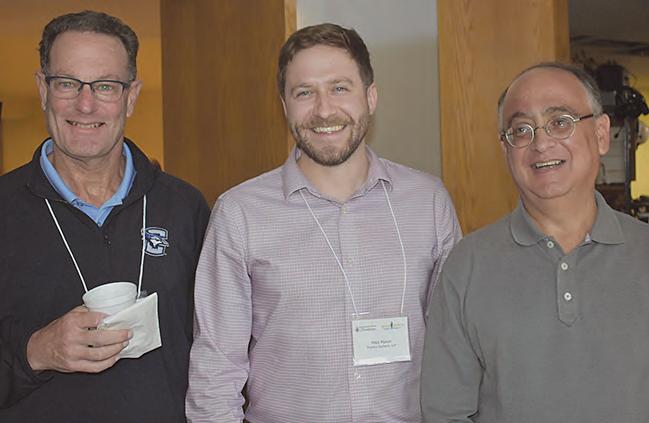


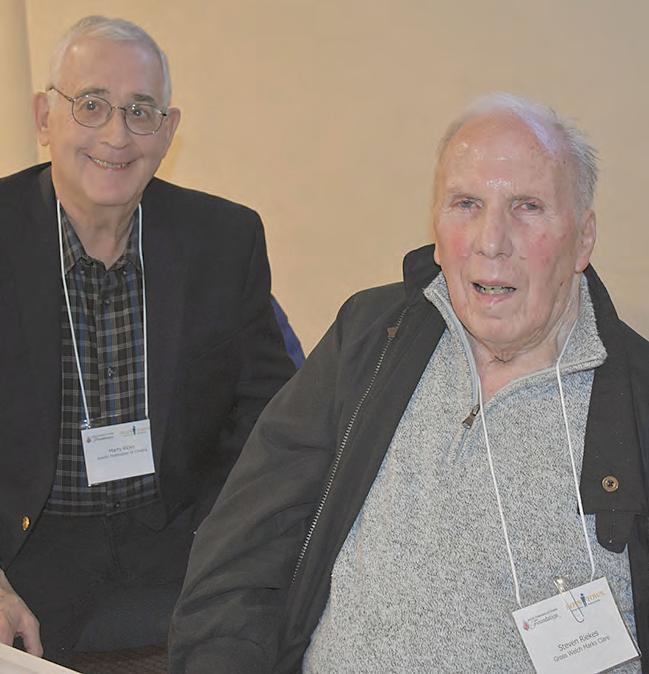


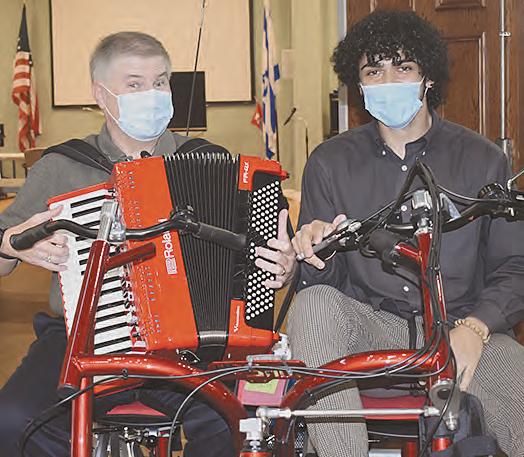
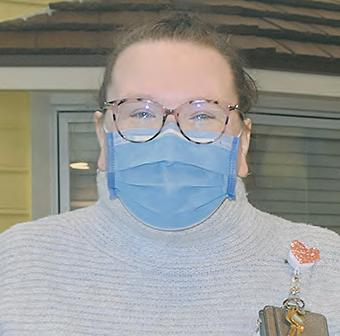





The Jewish Press | November 18, 2022 | 7
SUBMIT A
Have a photo of a recent
Community event you would like to submit? Email the image and a suggested caption to: avandekamp@jewishomaha.org
O TLIGHT
GENEROUSLY SUPPORTED BY PHOTOS FROM RECENT JEWISH COMMUNITY EVENTS
PHOTO:
Jewish
SP
Below: RBJH Musical Strolls with Wayne Miller, with his famous accordion, and Roinin Stanunovo Polacco, Activities Assistant!
Top, above and below: All three shifts of RBJH staff enjoy a Food Day sponsored by Dr. Roger and Marian Liu in blessed memory of their mother, Yu Sun. So delicious and well appreciated.
Left: A rainbow of colors - walker bags for our Residents from our Volunteer Seamstress Diane.
The Yale Richards Professional Education Seminar took place on Oct. 22. Pictured are top: Jeremy Belsky, Director of Gift and Estate Planning for Boys Town and Howard Epstein; above: Michael Abrahamson, Mike Mason, and Myron Kaplan; below: Marty Ricks and Steve Riekes; bottom: Robert Freeman and Thomas Pansing.
The Jewish Press
(Founded in 1920)
Margie Gutnik President Annette van de Kamp-Wright Editor Richard Busse Creative Director Lori Kooper-Schwarz Assistant Editor Gabby Blair Staff Writer Sam Kricsfeld Digital support Mary Bachteler Accounting
Jewish Press Board
Margie Gutnik, President; Abigail Kutler, Ex-Officio; Seth Feldman; David Finkelstein; Ally Freeman; Mary Sue Grossman; Les Kay; Natasha Kraft; Chuck Lucoff; David Phillips; and Joseph Pinson.
The mission of the Jewish Federation of Omaha is to build and sustain a strong and vibrant Omaha Jewish Community and to support Jews in Israel and around the world. Agencies of the JFO are: Institute for Holocaust Education, Jewish Community Relations Council, Jewish Community Center, Jewish Social Services and the Jewish Press
Guidelines and highlights of the Jewish Press, including front page stories and announcements, can be found online at: www.jewishomaha.org; click on ‘Jewish Press.’
Editorials express the view of the writer and are not necessarily representative of the views of the Jewish Press Board of Directors, the Jewish Federation of Omaha Board of Directors, or the Omaha Jewish community as a whole. The Jewish Press reserves the right to edit signed letters and articles for space and content. The Jewish Press is not responsible for the Kashrut of any product or establishment.
Editorial
The Jewish Press is an agency of the Jewish Federation of Omaha. Deadline for copy, ads and photos is: Thursday, 9 a.m., eight days prior to publication. E-mail editorial material and photos to: avandekamp@jewishomaha.org ; send ads (in TIF or PDF format) to: rbusse@jewishomaha.org

Letters to the Editor Guidelines
The Jewish Press welcomes Letters to the Editor. They may be sent via regular mail to: The Jewish Press, 333 So. 132 St., Omaha, NE 68154; via fax: 1.402.334.5422 or via e-mail to the Editor at: avandekamp@jewishomaha.org.
Letters should be no longer than 250 words and must be single-spaced typed, not hand-written. Published letters should be confined to opinions and comments on articles or events. News items should not be submitted and printed as a “Letter to the Editor.”
The Editor may edit letters for content and space restrictions. Letters may be published without giving an opposing view. Information shall be verified before printing. All letters must be signed by the writer. The Jewish Press will not publish letters that appear to be part of an organized campaign, nor letters copied from the Internet. No letters should be published from candidates running for office, but others may write on their behalf.
Letters of thanks should be confined to commending an institution for a program, project or event, rather than personally thanking paid staff, unless the writer chooses to turn the “Letter to the Editor” into a paid personal ad or a news article about the event, project or program which the professional staff supervised. For information, contact Annette van de Kamp-Wright, Jewish Press Editor, 402.334.6450.
Postal
The Jewish Press (USPS 275620) is published weekly (except for the first week of January and July) on Friday for $40 per calendar year U.S.; $80 foreign, by the Jewish Federation of Omaha. Phone: 402.334.6448; FAX: 402.334.5422.
Periodical postage paid at Omaha, NE. POSTMASTER: Send address changes to: The Jewish Press, 333 So. 132 St., Omaha, NE 68154-2198 or email to: jpress@jewishomaha.org
A small but hopeful spark
ANNETTE VAN DE KAMP-WRIGHT Jewish Press Editor
Remember how a few weeks ago I wrote about gratitude for those who stand with us against antisemitism? At the time, I wasn’t so sure that I felt grateful just because people showed some basic decency.
Then, this happened: singer Taylor Swift announced 27 tour dates, all of which but one were either on Shabbat, or too close to it.
“Essentially, this excluded any Jewish fans who are shomer Shabbat,” Evelyn Frick wrote for HeyAlma.com, “meaning that not only would they be attending Shabbat services during concerts, but also that they are prohibited from doing activities that require labor (i.e. driving or riding in a car, spending money or even clapping and dancing, according to some). In all likelihood, this would also affect Jewish fans who are not strictly observant, but set aside Shabbat as a time to be with family and unplug from the rest of the world.”
Shabbat-observant Swifties (that’s what her fans are called) complained, and Swift immediately “added eight more shows to the U.S. leg of her tour on Friday, all on weeknights, in cities such as Philadelphia, Seattle and Los Angeles.” (JTA.com)

To be honest, I don’t know much about Taylor Swift. I don’t listen to her music, and I can’t name a single song she has to her name. What I do know is that she is well-known and has a robust following and a platform:
“Swift’s Midnights album sold over a million
copies in its first week, and she is now tied with Barbra Streisand as the female artist with the most albums to top the Billboard chart.” (JTA.com)
servant is mostly unheard of. It’s above and beyond, so yes, I am pleasantly surprised, and I’m grateful— even though I do not intend to go to any Taylor Swift concerts, or buy her albums, or otherwise engage with her music. I don’t belong to her fandom—and that’s okay; I can still be grateful.
Writer Evelyn Frick called it “an easy fix,” but I am not so sure that accurately describes what happened here. An easy decision to add dates, yes, it should be, but for most people, it isn’t. Touring is expensive, and although Swift’s albums sell well, who knows whether these additional shows are financially viable? Live shows are tough on artists, can she physically handle eight extra performances? Can all the other people who make live concerts happen? What about security, background dancers, the venues? There is so much that goes into live performances, making a decision to add extra dates for the shomer shabbos crowd can’t have been easy. Still, the Swift people made it, and they made it fast. Let’s be honest, most artists would either ignore the criticism, make excuses, or maybe at best issue a lukewarm apology.
So, this is nice. It’s not earth shattering, it’s not going to change our reality. But it’s nice. It’s a tiny hopeful spark in an otherwise tiresome and hateful landscape—and for that, yes, I am grateful.
I also realize she did not have to do this. Adding extra dates just to accommodate the Shabbat-ob-
It’s also an example of a non-Jewish artist who realizes we are here, not as scapegoats or as people to discount, hate on or mock, but as people who deserve some special consideration for living life differently.
Kanye West’s hate speech awakens my ‘triple consciousness’ of being Black, Jewish and American
KENDELL PINKNEY JTA
When I read the news about Kanye West, I didn’t know whether to turn off my phone, or throw it.
I knew it would only be a matter of time before the emails and texts began rolling in: What do you think about Kanye? What’s to be done about antisemitism in the Black community? You must agree that Ye is challenging systems of power, not being antisemitic! Have you read this article by Black person X? Have you read this thought-piece by Jewish person Y? You know Heschel and other Jews walked with King at Selma; what would it take to get back to that!?
Here’s the reality: I am Black, I am a rabbi and I am a theater artist who frequently makes work that probes the intersections of Black and Jewish identity. So yes, I get why any number of people reached out to get my “take.” But to be honest, I find the Kanye saturation of this moment to be more exhausting than instructive, harmful as his incessant flow of antisemitic bile is.
The reason for my exhaustion is that moments like this more often result in stale public rehearsals of facts-and-figures, rhetorical whataboutism and, in my case, private requests for explanations or defenses. In cases where there’s a public apology, we might get a heavily staged meeting between a symbolic Black person and a symbolic Jew, but no one really thinks that such a “coming together” does the real work of forging understanding.
In short, events like these tend to result in panic and punishment, not in introspection.
Lest I be misunderstood, let me state a few points clearly:
• Kanye is antisemitic, and, like his equally egregious anti-Black and misogynist statements, his statements about Jews are appalling and deeply harmful.
• Despite the number of books on such topics, Black antisemitism is not a thing, just like Jewish anti-Blackness is not a thing. Rather, antisemitism and anti-Blackness are longstanding structures of social prejudice that all peoples and societies fall prey to.
• Regarding Black-Jewish civil rights solidarity, while it is worthwhile remembering the intrepid
Jewish leaders who walked with Dr. King and other Black civil rights leaders in Selma, that act of righteous resistance from nearly 60 years ago will only take Black and Jewish communities so far into their shared futures.
Inhabiting a Black and Jewish identity in contemporary America can be maddening. It is like navigating a rhetorical funhouse: You know that your lived experience is fully coherent, but the reflections you encounter along the path distort, disfigure and “invisiblize” your reality. More precisely, as a Black Jew you are forced to consider your identities from the perspectives of others, very few of whom have given any thought to your particular existence. If this idea sounds familiar, well, it is. It’s actually quite old.
In his seminal 20th century masterpiece, The Souls of Black Folk, the eminent Black polymath W.E.B. Du Bois addressed the conundrum of living in a society where the structures of racism force Black people into a split consciousness. “It is a peculiar sensation,” Du Bois writes, “this double-consciousness, this sense of always looking at one’s self through the eyes of [white] others, of measuring one’s soul by the tape of a world that looks on in amused contempt and pity. One ever feels his twoness, — an American, a Negro; two souls, two thoughts, two unreconciled strivings...”
While I have reservations about aspects of Du Bois’s broader worldview (e.g. his intra-Black elitism, his romantic view of nations and peoplehood) I find deep resonance in his observations on “double consciousness.” I have been in countless situations where I have simply sought to follow my interests, only for my Blackness to be the cause for minor and major slights. I have also endured antisemitic aggression and witnessed anti-Jewish religious sentiment up close. What is more, I have experienced the above in Jewish communities and Black communities, respectively. I am not alone in this. Many Black Jews can attest to the same.
To live as a Black Jew in America means to live with an awareness of just how precarious group belonging can be. In the case of hate speech, it also means an unfortunate familiarity with the frequent
intersections between anti-Blackness and antisemitism. Such experience would lead me to believe that Black Jews might have something unique to say in this moment. And yet, predictably, what
has happened since Kanye’s recent spate of antisemitic tweets is that Black Jews have been functionally overlooked in the public discourse — our voices relegated to small or parochial news outlets, niche podcasts, newsletters or Twitter feeds.
To me, this phenomenon places Du Bois’s observations in greater relief. Namely, being Black and Jewish in America is more than an act of “double-consciousness,” it is an act of “triple-consciousness.” In this configuration, I know by virtue of my Black, Jewish and American identities that I am an integrated being who embodies a way forward for our society, but I am often made to contend with the fact that my communities, and society in general, can only grasp my identity in its discrete parts, not as a whole.
In case you think this “triple consciousness” is theoretical, let me give a few concrete examples.
To live with “triple consciousness” is to notice that there were relatively few calls beyond those of Black individuals to condemn and boycott Kanye when he trafficked in white supremacist, anti-Black ideology.
To live with “triple consciousness” is to argue with non-Jewish acquaintances that pointing out the number of Jews in finance and media does not a keen observation make, nor does it provide evidence of a powerful cabal. See Kanyne West’s hate speech
Nebraska Press Association Award winner 2008 American Jewish Press Association Award Winner National Newspaper Association 8 | The Jewish Press | November 18, 2022 Voices
Editorials express the view of the writer and are not necessarily representative of the views of the Jewish Press Board of Directors, the Jewish Federation of Omaha Board of Directors, or the Omaha Jewish community as a whole.
9
page
“To live as a Black Jew in America means to live with an awareness of just how precarious group belonging can be.”
Credit: JTA illustration
The Kyrie case isn’t about ‘Blacks vs. Jews.’ It’s about bigotry.

 ANDREW SILOW-CARROLL JTA
ANDREW SILOW-CARROLL JTA
A powerful revival of Parade, the 1998 Broadway musical about the 1915 lynching of the Jewish factory manager Leo Frank by a Georgia mob, is wrapping up a short-term engagement at New York’s City Center. The show is stirring and moving without trivializing or exploiting one of the worst antisemitic incidents in U.S. history.
And yet I couldn’t quite shake my discomfort that this lavishly orchestrated, heart-tugging musical about the post-Reconstruction South was focused on the lynching of a white man. Alfred Uhry, who wrote the book, and Jason Robert Brown, seem to have anticipated this. They include a song, sung by two Black characters, noting that the Frank case would not have gotten half the attention it did if Frank or the girl he allegedly killed were Black.
For all the glorification of Black and Jewish cooperation in the civil rights era — some of it exaggerated, much of it deserved — the two communities have long been locked in this kind of competitive suffering. Black leaders have questioned Jewish claims to victimhood — especially when Jews accuse other Black leaders, such as Louis Farrakhan, of antisemitism — and have accused Jews of amplifying the power and reach of Black antisemites for their own ends.
Jews, meanwhile, resent being told that, as a community that tends to be seen as white, successful and politically influential, they can’t be regarded as victims of bigotry, especially when it comes from a disempowered minority.
Both dynamics have played out in the case of Kyrie Irving, the Brooklyn Nets star who shared a link to Hebrews to Negroes: Wake Up Black America, a 2018 film that contains a host of antisemitic tropes and that is based on a book that, no doubt thanks to Irving, is now a bestseller. In defending his decision to share the film — and giving it perhaps the widest platform it ever enjoyed — Irving downplayed his own sizable Twitter following and influence. “You guys come in here and make up this powerful influence that I have … [and say], ‘You cannot post that.’ Why not? Why not?” he asked reporters.
The canards shared in the film — especially the notion that Blacks are the “real” Jews — are rooted in the idea that “the greatness of Black men is being hidden or stolen from them,” as Jemele Hill, a Black sports journalist, explains in a piece in the Atlantic. What dismays Hill and other critics of Irving — Black, Jewish, both and neither — is that this understandable impulse to promote Black empowerment draws on a history of classic antisemitism: The film cites Henry Ford’s antisemitic opus “The International Jew” and denies the Holocaust. It claims that Jews have used falsehoods to “conceal their nature and protect their status and power.”
Writes Hill: “Irving has joined a troubling club of high-profile Black male celebrities — also including the rapper Kanye West — who have stubbornly embraced conspiracy theories, particularly anti-Semitic ones, under the pretext of seeking a deeper truth about their own origins.”
Some white liberal Jews are uncomfortable about calling out certain forms of antisemitism by prominent Blacks precisely because of a perceived power imbalance between Blacks and Jews, or because the ideas come from a place where ignorance meets legitimate grievance. Some Black leaders have similarly excused the long history of antisemitism and bigotry by Farrakhan’s Nation of Islam because the group has been seen as a force for good in impoverished Black communities.
The Jewish community doesn’t have the luxury of condescension when celebrities, however troubled, insert insidious ideas into the social media ecosphere. On Thursday, as the Nets, Kyrie, the NBA and the Anti-Defamation League were going back and forth on how to defuse his behavior, the FBI warned New Jersey synagogues of a credible “broad threat” against them, apparently from a man, so far unidentified, who holds “radical extremist views.” Jews are vigilant about diehard conspiracy theories, political dog whistles and online harassment not because they want to “protect their status and power,” but because they have seen spasms of deadly violence inspired by garbage shared online.
Late on Nov. 3 night, Irving at last apologized for his tweet, writing, “I posted a Documentary that contained some false anti-Semitic statements, narratives, and language that were untrue and offensive to the Jewish Race/Religion, and I take full accountability and responsibly for my actions.” His statement came after the Nets suspended him for a minimum of five games.
It’s not clear what other acts of contrition he might undertake, but I suggest he read up on the Leo Frank case, in which a Jewish man was falsely accused of murder by the same bigots who enforced Jim Crow. He might learn that when it comes to confronting hate and bigotry, Jews and Blacks have more to gain by listening to one another than tweeting about each other.
Andrew Silow-Carroll is editor in chief of the New York Jewish Week and senior editor of the Jewish Telegraphic Agency. He previously served as JTA’s editor in chief and as editor in chief and CEO of the New Jersey Jewish News @SilowCarroll
The views and opinions expressed in this article are those of the author and do not necessarily reflect the views of JTA or its parent company, 70 Faces Media.
And still others have suggested that Ye, with a history of mental illness, and Irving, who often dabbles in conspiracy theories, should not be subjected to the blunt outrage used to combat white supremacy and anti-Zionism. Or that none of us should be in the business of “policing the expression of Black athletes,” as the sports journalist Shireen Ahmed put it (before condemning Irving, it should be said).
These attitudes are patronizing, and it’s important to note that few if any influential Jews or Black commentators went there this week. West and Irving had few defenders for the antisemitic things they said or shared (although there was some Twitter “what-aboutism” suggesting the NBA was more concerned about a Black man’s antisemitism than China’s treatment of the Uighurs — a sticking point for a league that does major business in China).
On the left, Dave Zirin of The Nation writes about the link between racism and antisemitism and the far right: “What terrifies me about the current moment is that Kyrie’s politics are migrating and finding a sick alliance among Nazis, fascists, nationalists, and all manner of white supremacists who have long promoted these notions but wanted no part of Black politics unless it was about expressing common separatist ideas.”
As Zirin suggests, the canards West and Irivng are sharing are hardly unique to the Black community. Antisemitism and racism are social prejudices “that all peoples and societies fall prey to,” is how Kendell Pinkney, who is Black and Jewish, put it in a JTA essay (see previous page).
Kanye West’s hate speech

Continued from page 8
To live with “triple consciousness” is to carry the distinct, lived histories of two peoples in your heart and mind at all times. To live with “triple consciousness” is to know in the most intimate way that anti-Black rhetoric hurts Jews, and antisemitic rhetoric hurts Black people, because there are many of us who carry both identities and cannot disentangle them one from the other.
Finally, and most personally, to live with “triple consciousness” is to wonder whether my mixed Jewish child will grow up in an America where she feels compelled to closet aspects of her identity because society cannot hold the wonder of her complexity.
I cannot solve the issue of “triple consciousness” — after all, I did not create the strange reality underpinning it. Such a feat calls for a tremendous amount of work, honesty and humility. It also requires a critical willingness to interrogate how multiple oppressions are interlinked, rather than to dismiss such language as performative and overly “woke.”

I am not interested in virtue-signaling, much less ideological purity. Rather, I want what everyone wants, what Du Bois wanted: the simple dignity to be myself — Black, Jewish and American, “without being cursed and spit upon.”
Kendall Pinkney is a New York based theater artist, producer and rabbi. He is the Rabbinical Educator at Reboot and the founding Artistic Director of The Workshop, an arts and culture fellowship for BIPOC-Jewish artists.
The views and opinions expressed in this article are those of the author and do not necessarily reflect the views of JTA or its parent company, 70 Faces Media.
The Jewish Press | November 18, 2022 | 9
Kyrie Irving in a home game at Brooklyn's Barclays Center on Nov. 1, 2022. Credit: Dustin Satloff/Getty Images
If you do business with any of our advertisers, please tell them you saw their ad in the Jewish Press. It really helps us!
JEWISH PRESS READERS
Synagogues
B’NAI ISRAEL SYNAGOGUE
618 Mynster Street Council Bluffs, IA 51503-0766 712.322.4705 www.cblhs.orb email: CBsynagogue@hotmail.com
BETH EL SYNAGOGUE
Member of United Synagogues of Conservative Judaism 14506 California Street Omaha, NE 68154-1980 402.492.8550 bethel-omaha.org
BETH ISRAEL SYNAGOGUE
Member of Union of Orthodox Jewish Congregations of America 12604 Pacific Street Omaha, NE. 68154 402.556.6288 BethIsrael@OrthodoxOmaha.org
CHABAD HOUSE
An Affiliate of Chabad-Lubavitch 1866 South 120 Street Omaha, NE 68144-1646 402.330.1800 OChabad.com email: chabad@aol.com
LINCOLN JEWISH COMMUNITY:
B’NAI JESHURUN
South Street Temple Union for Reform Judaism 2061 South 20th Street Lincoln, NE 68502-2797 402.435.8004 www.southstreettemple.org
OFFUTT AIR FORCE BASE
Capehart Chapel 2500 Capehart Road Offutt AFB, NE 68123 402.294.6244 email: oafbjsll@icloud.com
ROSE BLUMKIN
JEWISH HOME
323 South 132 Street Omaha, NE 68154 rbjh.com
TEMPLE ISRAEL
Union for Reform Judaism (URJ) 13111 Sterling Ridge Drive Omaha, NE 68144-1206 402.556.6536 templeisraelomaha.com
LINCOLN JEWISH COMMUNITY: TIFERETH ISRAEL
Member of United Synagogue of Conservative Judaism 3219 Sheridan Boulevard Lincoln, NE 68502-5236 402.423.8569 tiferethisraellincoln.org
Monthly Speaker Series Service, Friday, Dec. 9, 7:30 p.m. with our guest speaker. Our service leader is Larry Blass. Everyone is always welcome at B’nai Israel!
For information on COVID-related closures and about our historic synagogue, please contact Howard Kutler at hkutler@hotmail.com or any of our other board members: Scott Friedman, Rick Katelman, Janie Kulakofsky, Howard Kutler, Carole and Wayne Lainof, Mary-Beth Muskin, Debbie Salomon and Sissy Silber. Handicap Accessible.
Services conducted by Rabbi Steven Abraham and Hazzan Michael Krausman.
VIRTUAL AND IN-PERSON MINYAN SCHEDULE: Mornings on Sundays, 9:30 a.m.; Mondays and Thursdays, 7 a.m.; Evenings on Sunday-Thursday, 5:30 p.m.
FRIDAY: Nebraska AIDS Project Lunch, 11:30 a.m.; Six String Shabbat 6 p.m. at Beth El & Live Stream.
SATURDAY: Shabbat Morning Services, 10 a.m. at Beth El & Live Stream; Jr. Congregation, 10 a.m.; Havdalah, 5:40 p.m. Zoom Only.
SUNDAY: BESTT (Grades K-7), 9:30 a.m.;The Shabbat Seder, 10 a.m. with Hazzan Krausman at Beth El; Torah Tots (Ages 3-5), 10 a.m.; Thanksgiving with St. Luke, 6 p.m.
TUESDAY: Pirkei Avot, 11:30 a.m. with Rabbi Abraham at Beth El & Live Stream.
WEDNESDAY: BESTT Thanksgiving Break
THURSDAY: Ba’al Tefillah Workshop, 7 p.m. with Hazzan Krausman via Zoom Only.
FRIDAY-Nov. 25: Kabbalat Shabbat 6 p.m. at Beth El & Live Stream.
SATURDAY-Nov. 26: Shabbat Morning Services, 10 a.m. at Beth El & Live Stream; Havdalah, 5:35 p.m. Zoom Only.
Please visit bethel-omaha.org for additional information and service links.
BETH ISRAEL
FRIDAY: Nach Yomi, 6:45 a.m.; Shacharit, 7 a.m.; Mincha/Kabbalat Shabbat/Candlelighting, 4:45 p.m.
SATURDAY: Shabbat Kollel, 8:30 a.m.; Shacharit, 9 a.m.; Tot Shabbat 10:45 a.m.; Kids Parsha Class, 4 p.m.; Mincha/Shalosh Suedos, 4:30 p.m.; Laws of Shabbos/ Kids Activity, 5 p.m.; Ma’ariv/Havdalah, 5:47 p.m.
SUNDAY: Shacharit 9 a.m.; Daf Yomi 4 p.m.; Mincha/Ma’ariv, 4:40 p.m.
MONDAY: Nach Yomi, 6:45 a.m.; Shacharit, 7 a.m.; Daf Yomi, 4 p.m.; Mincha/Ma’ariv, 4:40 p.m.; Hanukkah Orders Due, 5 p.m.
TUESDAY: Nach Yomi, 6:45 a.m.; Shacharit, 7 a.m.; Daf Yomi, 4 p.m.; Mincha/Ma’ariv, 4:40 p.m.
WEDNESDAY: Nach Yomi, 6:45 a.m.; Shacharit, 7 a.m.; Daf Yomi, 4 p.m.; Mincha/Ma’ariv, 4:40 p.m.
THURSDAY: Thanksgiving — Office Closed; Shacharit, 9 a.m.; Daf Yomi, 4 p.m.; Mincha/Ma’ariv, 4:40 p.m.; Parsha Class, 5 p.m.
FRIDAY-Nov. 25: Thanksgiving Friday — Office Closed; Shacharit, 9 a.m.; Mincha/Kabbalat Shabbat/Candlelighting, 4:41 p.m.
SATURDAY-Nov. 26: Shabbat Kollel, 8:30 a.m.; Shacharit, 9 a.m.; Tot Shabbat, 10:45 a.m.; Kids Parsha Class, 4 p.m.; Mincha/Shalosh Suedos 4:30 p.m.; Laws of Shabbos/Kids Activity, 5 p.m.; Ma’ariv/Havdalah, 5:43 p.m.
CHABAD HOUSE
Please visit orthodoxomaha.org for additional information and Zoom service links.
All services are in-person. All classes are being offered in-person/Zoom hybrid (Ochabad.com/classroom). For more information or to request help, please visit www.ochabad.com or call the office at 402.330.1800.
FRIDAY: Shacharit 8 a.m.; Inspirational Lechayim, 4:30 p.m. with Rabbi and friends: ochabad.com/Le chayim; Candlelighting, 4:44 p.m.
SATURDAY: Shacharit 9:30 a.m. followed by Kiddush and Cholent; Shabbat Ends, 5:45 p.m.
SUNDAY: Sunday Morning Wraps: Video Presentation 9-9:30 a.m. and Breakfast, 9:45 a.m.
MONDAY: Shacharit, 8 a.m.; Personal Parsha, 9:30 a.m.; Hebrew Grammar, 10:30 a.m. with Prof. David Cohen.
TUESDAY: Shacharit, 8 a.m.
WEDNESDAY: Shacharit 8 a.m.; Tanya Class, 9:30 a.m.; Hebrew Grammar, 10:30 a.m. with Prof. David Cohen; Hebrew Reading, 11:30 a.m. with Prof. David Cohen.
THURSDAY: Shacharit, 8 a.m.; Hebrew Reading, 11 a.m. with Prof. David Cohen; Talmud Study (Sanhedrin 18 — No advance experience necessary), noon; Jewish Law Class, 7 p.m.
FRIDAY-Nov. 25: Shacharit 8 a.m.; Inspirational Lechayim, 4:30 p.m. with Rabbi and friends: ochab ad.com/Lechayim; Candlelighting, 4:40 p.m.
SATURDAY-Nov. 26: Shacharit 9:30 a.m. followed by Kiddush and Cholent; Shabbat Ends, 5:42 p.m.
LINCOLN JEWISH COMMUNITY: B’NAI JESHURUN & TIFERETH ISRAEL
Services facilitated by Rabbi Alex Felch. Note: Some of our services, but not all, are now being offered in person.
FRIDAY: LJCS Shabbat Service, 6:30 p.m. at SST; Candlelighting, 4:48 p.m.
SATURDAY: Shabbat Morning Service, 9:30 a.m. with Rabbi Alex at TI; Torah Study, noon on Parashat Chayei Sara; Havdalah, 5:49 p.m.
SUNDAY: LJCS Classes, 9:30 a.m.; Men's Jewish Bike Group of Lincoln meets Sundays at 10 a.m., rain
or shine, to ride to one of The Mill locations from Hanson Ct. (except we drive if it’s too wet, cold, cloudy, windy, hot or humid) followed by coffee and spirited discussions. If interested, please email Al Weiss at albertw801@gmail.com to find out where to meet each week; Pickleball will restart soon at TI, but first we want to know how many people are interested. There are three possibilities and we can do any or all of them depending on interest: Do a teaching clinic (equipment provided); Just Play. Newcomers welcome; Coaching sessions, providing tips and practice to improve your game. Please let Miriam Wallick know which options you're most interested in by text message 402.470.2393 or email at Miriam57@aol.com
TUESDAY: Tea & Coffee with Pals, 1:30 p.m. via Zoom.
WEDNESDAY: No LJCS Classes
THURSDAY: Thanksgiving — Synagogue Offices Closed
FRIDAY-Nov. 25: Kabbalat Shabbat Service with Rabbi Alex and music by Nathaniel and Steve Kaup, 6:30 p.m. at SST; Oneg host: TBD; Candlelighting, 4:44 p.m.
SATURDAY-Nov. 26: Shabbat Morning Service, 9:30 a.m. with Rabbi Alex at TI; Torah Study, noon on Parashat Toldot; Havdalah, 5:46 p.m.
FRIDAYS: Virtual Shabbat Service, 7:30 p.m. every first and third of the month at Capehart Chapel. Contact TSgt Jason Rife at OAFBJSLL@icloud.com for more information.
The Rose Blumkin Jewish Home’s service is currently closed to visitors.
TEMPLE ISRAEL
In-person and virtual services conducted by Rabbi Batsheva Appel, Rabbi Deana Sussmam Berezin, and Cantor Joanna Alexander
FRIDAY: Drop-In Mah Jongg, 9-11 a.m.; Tot Shabbat 5:45 p.m. In-Person; Shabbat Service, 6 p.m. Zoom & In-Person.
SATURDAY: Torah Study, 9:15 a.m. Zoom & In-Person.
SUNDAY: Interfaith Thanksgiving Service, 5 p.m. at First United Methodist Church. In-Person.
WEDNESDAY: Yarn It, 9 a.m. In-Person; Community Beit Midrash, 7 p.m.
THURSDAY: Temple Office Closed.
FRIDAY-Nov. 25: Temple Office Closed; Shabbat B’yachad Service, 6 p.m. Zoom & In-Person.
SATURDAY-Nov. 26: Torah Study 9:15 a.m. Zoom & In-Person.
Please visit templeisraelomaha.com for additional information and Zoom service links.
Takeaways for American Jews from the midterm elections
RON KAMPEAS AND GABE FRIEDMAN
JTA
The overarching narrative from the pivotal midterm election slate was clear by the morning of Nov. 9: the Republican Party’s hopes of a sweeping red wave have been dashed.

But how did the issues and candidates that Jewish Americans were watching most closely fare? Here are our initial insights from the first rounds of results.
1. Most of the Republican candidates who drew attention for their ties to or even embrace of rightwing extremists fell short at the ballot box. Doug Mastriano, who ran for governor in Pennsylvania and used Gab, the social media platform owned by an antisemite, to reach potential voters, lost decisively — to an observant Jew named Josh Shapiro.
Lauren Boebert, a Christian nationalist who is one of the most extreme members of Congress and who infuriated Jewish groups by comparing coronavirus restrictions to the Holocaust, could still be knocked out of her reliably red congressional seat in Colorado — by a self-described “moderate, pragmatic Jew,” Adam Frisch.
2. American voters are aligned with American Jews when it comes to abortion rights. Exit polls showed that the Supreme Court’s reversal of Roe v. Wade had galvanized voters, and in five red states where reproductive rights were on the ballot, vot-
ers backed measures to make abortion more accessible. Measures upholding abortion rights passed in Michigan, Vermont and California, while voters in Kentucky — which otherwise trended conservative — defeated a measure that would have made the procedure illegal. That means voters sided with the predominant Jewish sentiment: American Jews favor abortion rights, more reliably so than any other religious group, according to public polling.
3. Florida’s Jewish voters are headed for the spotlight.
While Republicans didn’t post the red wave many expected across the country, Florida was one clear bright spot for far-right candidates on election night, where Anna Paulina Luna cleanly defeated Jewish Democrat Eric Lynn. The results in the state shows that Republicans are ensconced in power there — and that Gov. Ron DeSantis, who waltzed to reelection, would be a formidable contender for the GOP presidential nomination in 2024. The growing number of Orthodox Jews in the state, who tend to vote Republican, likely contributed to his margin of victory. Now, as all eyes turn to 2024, those Jews and how they vote will be
a focus for political analysts.
4. A breakout star of this cycle is a Jewish day school dad. Pennsylvania’s Governor-elect Josh Shapiro is a self-described moderate Democrat and
he has never lost: He represented Pennsylvania’s 153rd District in the state’s House of Representatives from 2005 to 2012. Through it all, Shapiro wears his Jewishness on his sleeve, and as his opponent in the governor’s race flirted with multiple antisemitism controversies, Shapiro leaned into that identity instead of shying from it. Voters were aware: Shapiro is a kosher-keeping, observant Jewish dad who sends his kids to a Jewish school.
10 | The Jewish Press | November 18, 2022
B’NAI ISRAEL
BETH EL
OFFUTT AIR FORCE BASE
ROSE BLUMKIN JEWISH HOME
Credit: Mark Makela/Getty Images
Life cycles
MATLEE “MATI” KATLEMAN YADIN
Matlee “Mati” Katleman Yadin of Silver Spring, MD, passed away suddenly on Oct. 19, 2022. A graveside funeral service was held on Oct. 21, 2022 at Judean Memorial Gardens in Olney, MD. She is survived by her husband, Mordechai Yadin; daughter and son-in-law, Naomi Esther Yadin-Mendick and David Mendick; son and daughter-in-law, Elliot Yadin and Kinneret Rand-Yadin; sister, Ferne Katleman; grandchildren: Mira, Ethan and Gabriella Mendick and Max and Joy Nissen, Sydni and Tomer David, Noam, Adi and Amit Rand; and great-grandchildren: Ariella and Itai Nissen.
She was born in Omaha, NE, on June 29, 1937, to Sidney Katleman and Rose Wolfson Katleman. Mati grew up in Omaha with older sister Ferne and cousins who were like siblings. She moved to the Washington, DC, area with her new husband, Mordechai “Mort” Yadin, in 1960. After teaching fifth grade for a short time, she and Mordechai started their family and Mati embarked on a lifelong career as a dedicated volunteer and lay leader in numerous local and national Jewish organizations.
Memorials may be made to B’nai Israel Congregation, Rockville, MD, Friends of the Israel Defense Forces (FIDF), The Jewish Federation of Greater Washington (earmarked for disabilities inclusion) or to the organization of your choice.
In the Nov. 4 issue of the Jewish Press in the article “Jewish Business Leaders returns” and error was made in stating that Rachel Jacobson works for the Heritage Foundation. This is not correct; Rachel is President of Heritage Omaha. The Jewish Press and the JFO Foundation regret the error.

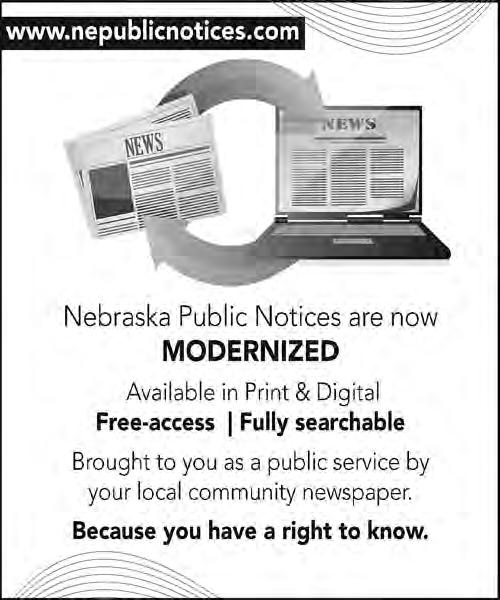
Save these Dates
Adidas to partner with
GABE FRIEDMAN JTA
Four weeks after saying he was “alarmed” by Adidas’ ties to Kanye West, Jonathan Greenblatt, the CEO of the AntiDefamation League, donned the company’s sneakers for his group’s “Never is Now” conference in New York City.
The about-face happened after Adidas ended its relationship with West weeks after the rapper began making antisemitic comments, satisfying the ADL’s demands. Now, Adidas is making a major donation to the anti-hate group and working with it to fight antisemitism among student and professional athletes.
The news was first reported by eJewishPhilanthropy during the ADL conference where a top Adidas official spoke.
“We don’t always get things right. We are not perfect,” Rupert Campbell, the president of Adidas North America, said at the conference. “But in this case, we know without a doubt, we made the right decision. We know that without a doubt the racist and antisemitic hate speech by our former partner violated our values. We took action to begin dismantling the partnership. This took time given the complexity of the partnership. But we remain committed to living our values.”
The new program includes the creation of an anti-bigotry curriculum to be disseminated among student athletes, according to eJewishPhilanthropy, and will see Adidas focus on enlisting professional athletes in the fight against antisemitism.
“While I wish they did it sooner, Adidas — to their credit — made it abundantly clear that they would not do business with bigots,” Greenblatt said. “And today I am so pleased that they are here at Never Is Now to announce an incredible commitment that demonstrates that their dedication to fighting antisemitism will last long beyond this moment.”
The community is invited to attend our upcoming production of Peter and the Starcatcher held at the Alan J. Levine Theater at the J. Tickets can be purchased with Sophie Knauss at 402.334.6402 or sknauss@jccomaha.org

General Admission is $10 and advanced purchase is strongly recommended. Any remaining tickets will be available for purchase at the door.
Performances are scheduled for Thursday, Dec. 15 at 7 p.m.; Saturday, Dec. 17 at 7 p.m. and Sunday, Dec. 18 at 2 p.m.
Patron tickets are available for all recitals and musical theater performances. The amount beyond the ticket price is a tax-deductible donation! Call 402.334.6402 to purchase. Patron tickets must be purchased before Nov. 30 to have your name in the program. For more information, please visit www.jccomaha.org and fo to our performing arts section.
Visit us at omahajewishpress.com
The ADL was one of the many Jewish organizations to call out Adidas for its silence after West began making antisemitic comments last month. The company had been sharply criticized for waiting too long to sever its ties with West, whose Yeezy line of shoes brought the company well over $1 billion last year.
The German company — which has a Nazi past that its website does not acknowledge — will continue to sell West-designed shoes, without the Yeezy name or other branding, it announced on Wednesday.
ELIMINATE
FOR SALE - SENIORS


HOME SERVICES

and power your home. Full installation services available.
$0 Down Financing Option. Request a Free, no obligation, quote today. Call 1-833-513-0190.
DOES YOUR basement or crawl space need some attention? Call Thrasher Foundation Repair! A permanent solution for waterproofing, failing foundations, sinking concrete and nasty crawl spaces. FREE Inspection & Same Day Estimate. $250 off ANY project with code GET250. Call 1-844-958-3431.
WANTED TO BUY
DOLLARS FOR Deerhides - $$$ FOR DEERHIDES! HUNTERS. Petska Fur running routes in your area, will trade gloves or buy deer/elkhides, antler and fur. www.petskafur.net “Fur routes” “Nebraska”.
ANNOUNCEMENT THANK YOU Nebraska voters and Libertarians! Let’s move the REAL debates forward about reducing cyber dependence. Paid for by 2022 State Treasurer Runner-up Katrina Tomsen.
democracy
and your
PRESS Release service. Send your message to 155 newspapers across Nebraska for one low price! Call
369-2850 or
for more details.
CLASSIFIED ADVERTISING works! Place your 25 word ad into thousands of Nebraska homes for $225. Contact The Jewish Press or call 1-800-369-2850. HELLO NEBRASKA! Introducing www.nepublicnotices.com, a new public notice website presented as a public service by all Nebraska newspapers. Free access, fully searchable – because
depends upon open government
right to know. AFFORDABLE
1-800-
www.nebpress.com
OXYGEN Concentrator? May be covered by Medicare! Reclaim independence and mobility with the compact design and long-lasting battery of Inogen One. Free information kit!
PORTABLE
Call 855-385-3580.
GUTTER
debris-blocking
Military Discounts.
GENERAC PWRcell,
solar
battery
Save money,
outages
cleaning forever! LeafFilter, the most advanced
gutter protection. Schedule a FREE LeafFilter estimate today. 20% off Entire Purchase. Plus 10% Senior &
Call 1-855-671-2859. THE
a
plus
storage system.
reduce your reliance on the grid, prepare for power
The Jewish Press | November 18, 2022 | 11
NEBRASKA STATEWIDE CLASSIFIEDS
IN MEMORIAM PEOPLE WHO READ NEWSPAPERS ARE It all starts with Newspapers. STUDENTS WITH BETTER GRADES Tritz Plumbing Inc. 402-894-0300 www.tritz.com family owned and operated since 1945 repair • remodelcommercial • residential Pulverent e MONUMENT CO. Family Owned and Operated 1439 So. 13th 402-341-2452 Over60YearsExperience With Jewish LetteringandMemorials
CORRECTION FULL-TIME SALES MANAGER Interested? Send your application to Avandekamp@jewish omaha.org today. We cannot wait to meet you! The Jewish Press is looking for a full-time sales manager, with the following responsibilities: • Print and digital sales • Digital Content development • Tracking sales goals and reporting results • as necessary • Promoting the organization and products The Jewish Press Requirements: • Previous experience in a sales-related role is • a plus • Familiarity with website management • Great customer service skills • Excellent written and verbal communication • skills
ADL
Meet the Jewish world champion of Magic: The Gathering
 JACOB GURVIS JTA
JACOB GURVIS JTA
There’s a good chance that right now, Nathan Steuer is playing, or thinking about playing, Magic: The Gathering. The trading card game, which Steuer used to play with friends at Jewish summer camp, has become the 20-year-old Berkeley native’s lifelong passion and full-time job.
Steuer — who had a bar mitzvah in addition to attending the Union for Reform Judaism’s Camp Newman in Santa Rosa, California — competes in online tournaments every weekend for about 12 hours each on Saturdays and Sundays. He spends hours preparing and studying strategy, and also coaches other players in his spare time. He’s even currently taking a year off from his studies at the University of California, Santa Cruz, in order to focus on the game.
The obsession paid off when Steuer won the Magic World Championship on Oct. 30 in Las Vegas, beating the 31 other best players from across the globe.
“It felt honestly surreal, like a dream,” Steuer told the Jewish Telegraphic Agency in an interview this week. He sounds very measured and reserved on the phone, and he thinks that calmness helps his game.
“When you’re playing versus such high-level players in a world championship setting, a lot of your edges in terms of trying to win a greater amount come from keeping a really level-headed approach to each game, and making sure to essentially not let nerves affect you,” Steuer explained.
For the uninitiated, in “Magic,” as it is colloquially known, each player inhabits the role of a “Planeswalker,” a wizard who can traverse dimensions to battle others in turn-based combat using spells. The game, which hit the market in 1993, often draws comparisons to predecessor Dungeons & Dragons, and can now be played both online and with physical cards. It has been played by tens of millions of people worldwide.
national tournaments.
The World Championship comes with the hefty prize of $100,000 — but as a true Magic purist, Steuer is even more excited about the other part of the winnings: the opportunity to design his own Magic card with a fantasy illustration of himself that will be released in future decks.
“The prize money is awesome. But having that opportunity is really fantastic,” he said.
Steuer grew up attending synagogue every week for Shabbat services and religious school, an experience he remembers fondly.

“I really enjoyed getting to do that with my family, and having that experience was super meaningful, probably from when I was four to around the time of my bar mitzvah,” he said. But even though he played Magic at Jewish camp, Steuer said he hasn’t felt much overlap lately in those two aspects of his life.

It’s possible to earn a living as a Magic player: According to the official Magic site, around 150 players have amassed at least $100,000 career earnings, with the top player cracking $1 million. Steuer isn’t sure what his future holds, but for the time being, he’s devoted to his favorite game.
“I decided to transition and see how far this career could take me because it had been probably my biggest passion growing up, I never stopped,” Steuer said. “And so once I saw the opportunity, I decided to pursue it and see it through.”
Going forward, Steuer said he will work to defend his world title at next year’s championship. He’s also interested in the behind-the-scenes aspects of the game he loves, such as designing cards.
“Winning gave me that feeling that I have a lot that I can conquer outside of playing Magic if I set my mind to something, and I think it gave me a firm grasp that I can figure out my own path to success, whether it’s Magic or another pursuit.”

HANUKKAH
12 | The Jewish Press | November 18, 2022 News LOCAL | NATIONAL | WORLD
Contact our advertising executive to promote your business in this very special edition. Publishing
Space
Annette van de Kamp | avandekamp@jewishomaha.org
date | 12.09.22
reservation | 11.22.22
After the onset of the pandemic, the game largely transitioned online, especially for serious players. There’s an entire Pro Tour of players who compete in highly-competitive, inter-
Above: Nathan Steuer won the 2022 Magic: The Gathering World Championship in Las Vegas, Oct. 30, 2022. Credit: Steuer, below: Steuer, then 12 years old, playing Magic: The Gathering. Credit: Steuer





 MARK KIRCHHOFF JFO Engagement and Education
MARK KIRCHHOFF JFO Engagement and Education


 VAN DE KAMPWRIGHT Jewish Press Editor
VAN DE KAMPWRIGHT Jewish Press Editor









 TOBY AXELROD JTA
TOBY AXELROD JTA















 PHILISSA CRAMER JTA
PHILISSA CRAMER JTA


















 ANDREW SILOW-CARROLL JTA
ANDREW SILOW-CARROLL JTA









 JACOB GURVIS JTA
JACOB GURVIS JTA


